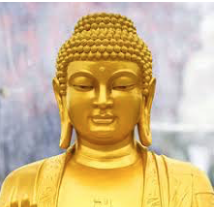Living in the Present
Posted By Cliff Tuttle | April 29, 2018
No. 1,480
 I read a lot of stuff on the internet extolling the value of living in the present. It is an idea that was undoubtedly an ancient one when the Buddha, about 2,500 years ago advised:
I read a lot of stuff on the internet extolling the value of living in the present. It is an idea that was undoubtedly an ancient one when the Buddha, about 2,500 years ago advised:
Do not dwell in the past, do not dream of the future, concentrate the mind on the present moment.
Of course, it is impossible to block all thoughts of the future or the past and it is doubtful that any rational human would wish to do so. We appreciate the value of presence of mind, but actually attaining that mental state is another matter.
Consider driving. Driving is dangerous business. You and I travel at speeds that would have terrified our ancestors a couple of centuries ago. If you make a mistake or if someone in another vehicle makes one, the cost can be tremendous. Property damage, serious injury, death. Even if you concentrate single-mindedly on the process of driving, you cannot fully eliminate the risk. Other people are out there, too. Some of them are drunk, very tired or concentrating on text messages. Even if you try to eliminate every distraction, your mind automatically visualizes other things and for a few moments you are looking at that mental image, not the road. In a sense, if you drive long enough, you are absolutely certain to have some kind of an accident. Hopefully, you won’t need to drive too much in a lifetime and so, inevitably encounter the end of the road.
While you can’t and shouldn’t banish all thinking about past and future events, you can exercise enough mental discipline to make a difference. Practice watching the road. Look for erratic drivers. Look for erratic pedestrians. Concentrate on navigating through the maze you encounter as though you were playing an electronic game or sitting behind the console of a flight simulator. After all, this exercise is not a simulation. You won’t be permitted to reboot after you crash. This is the real thing.
Now you get to your destination. You carefully park. You look in the back seat for your briefcase, which you carefully packed and then checked before you left. As you walk to your destination, you are planning the route, remembering what you intend to do, remembering whom you will meet and what you want to say. As you walk, you are still scanning the ground and the steps for the unanticipated pratfall.
There’s quite enough going on to occupy the mind productively without thinking too much about unrelated and unimportant stuff while there is work to be done. That’s my interpretation of the word mindfulness.
CLT



